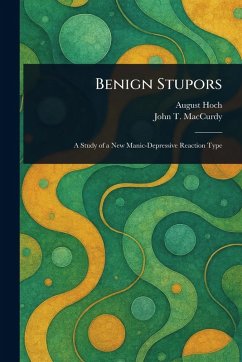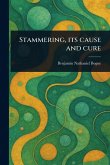"Benign Stupors: A Study of a New Manic-Depressive Reaction Type," by August Hoch, offers a detailed exploration of a specific presentation of manic-depressive illness, now understood as bipolar disorder. This historically significant work delves into the intricacies of "benign stupors," characterized by periods of mental slowness, inactivity, and unresponsiveness as manifestations of the broader spectrum of manic-depressive reactions. Hoch's study provides valuable insights into the psychiatric understanding of mental illness during the early 20th century. It examines the relationship between stupor and depression, offering a nuanced perspective on the diagnosis and classification of these conditions. This volume contributes to the historical context of psychiatry and neurology. Students and professionals interested in the history of mental health and the evolution of diagnostic categories will find this meticulously prepared edition an invaluable resource. The book's detailed observations offer a glimpse into the past, providing a crucial foundation for contemporary understanding of manic-depressive illness. This work has been selected by scholars as being culturally important, and is part of the knowledge base of civilization as we know it. This work is in the public domain in the United States of America, and possibly other nations. Within the United States, you may freely copy and distribute this work, as no entity (individual or corporate) has a copyright on the body of the work. Scholars believe, and we concur, that this work is important enough to be preserved, reproduced, and made generally available to the public. We appreciate your support of the preservation process, and thank you for being an important part of keeping this knowledge alive and relevant.
Bitte wählen Sie Ihr Anliegen aus.
Rechnungen
Retourenschein anfordern
Bestellstatus
Storno









